Bonfires will be lit across Northern Ireland tonight, July 11, for 'Eleventh Night' - but what is the meaning behind the Loyalist tradition?
July 11 is the night before July 12, which is generally known as Orangemen's Day, a loyalist and Protestant celebration, in Northern Ireland.
While the 12th celebrates the 'Glorious Revolution' of 1688 and the victory of Protestant King William of Orange over Catholic King James II at the Battle of the Boyne in 1690, the bonfires lit in loyalist areas on the 11th stem from the understanding that fires were lit on the hills of Cos Antrim and Down to help Williamite ships navigate through Belfast Lough at night.
Each July in Northern Ireland now sees an outpouring of Loyalist pride in the form of the Eleventh Night and the Glorious Twelfth.
What is Northern Ireland's marching season?
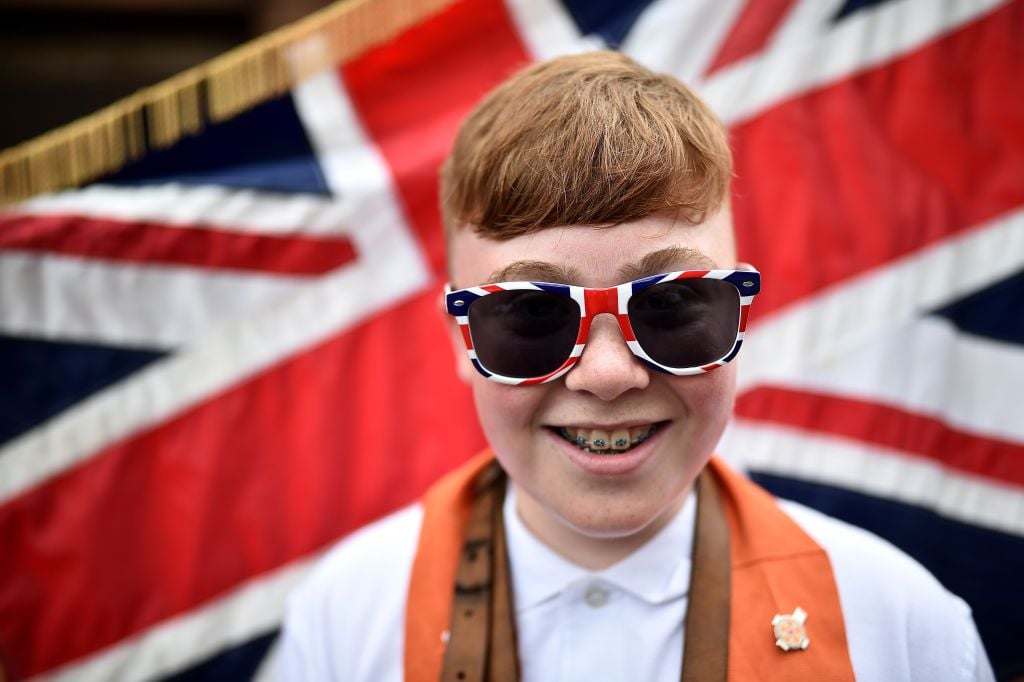
July 12, 2018: A young Orange man at the annual 12th of July Orange march in Belfast, Northern Ireland. (Getty Images)
The marching season in Northern Ireland runs from April through August for those of the heavily Protestant Loyalist and Unionist tradition in Northern Ireland.
However, the events peak on July 12, often known as the Glorious Twelfth, The Twelfth, or Orangemen's Day, an annual celebration to honor the 17th-century battlefield victory over Irish Catholics in the Battle of the Boyne.
What is Orangeman's Day or the Twelfth in Northern Ireland?
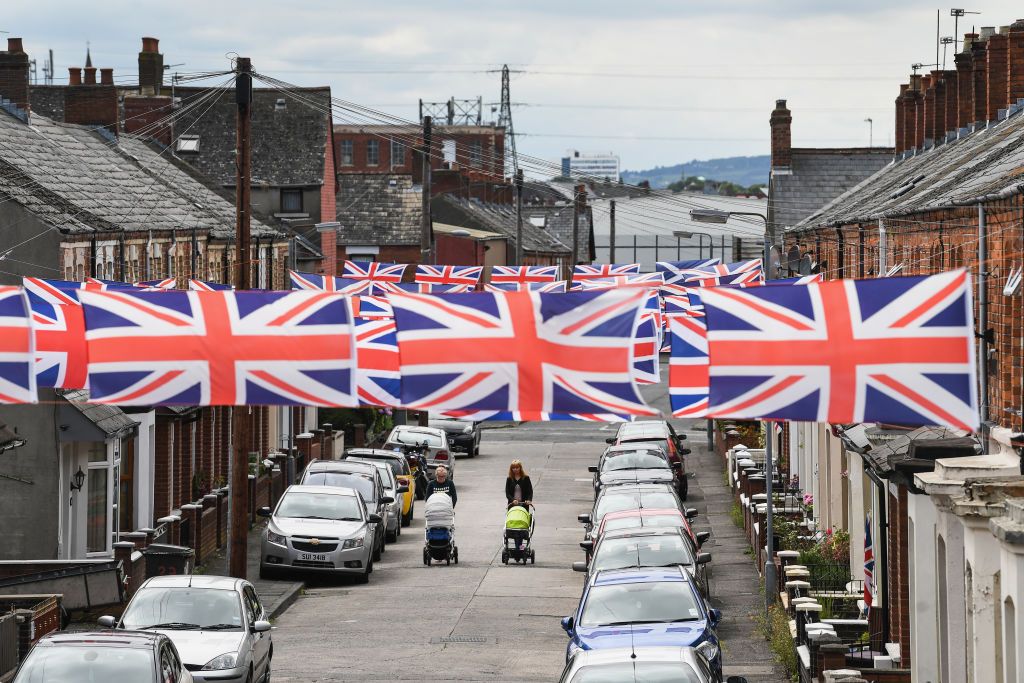
Loyalists hang out bunting in Moorgate Street, East Belfast in preparation for the 11th night celebrations on July 11, 2017, in Belfast, Northern Ireland. (Photo by Jeff J Mitchell/Getty Images)
The Glorious Twelfth, The Twelfth, or Orangemen's Day is held annually on July 12, the most important day in the marching calendar which marks the Orange Order's commemoration of the victory of Protestant William of Orange over Catholic James II in the Battle of the Boyne in 1690.
July 12 is a public holiday in Northern Ireland, where the general population is off and schools and businesses are closed.
Why are bonfires lit in Northern Ireland on July 11?
July 10, 2017: Loyalists sit on the Sandy Row bonfire being built in preparation for the 11th night bonfire on July 10, 2017, in Belfast, Northern Ireland. (Photo by Jeff J Mitchell/Getty Images.)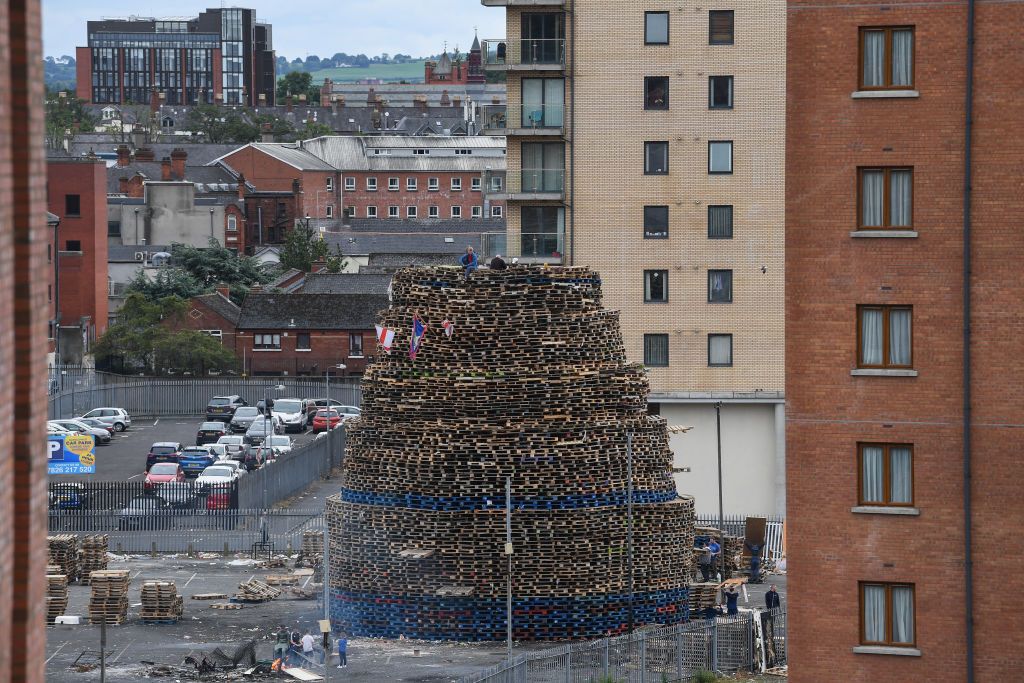
The tradition of lighting bonfires throughout Northern Ireland on the night of July 11 is believed to have started as a way to commemorate the lighting of fires on hilltops in Antrim and Down that helped Williamite forces navigate through the Belfast Lough at night during the Williamite Wars in Ireland.
The Eleventh Night bonfires on July 11 are typically held in loyalist areas of Northern Ireland, communities that remain loyal to the British crown.
However, symbols of Irish nationalism, republicanism, or of Catholicism are sometimes added to the pyre during the bonfires, although moves have been made in recent years to remove the sectarian element of the bonfires as well as the burning of tires which causes harmful chemicals to be released into the air.
What is the criticism of the Eleventh Night bonfires?
July 12, 2017: Loyalists gather in front of the bonfire on the Sandy Row area in Belfast. (Getty Images)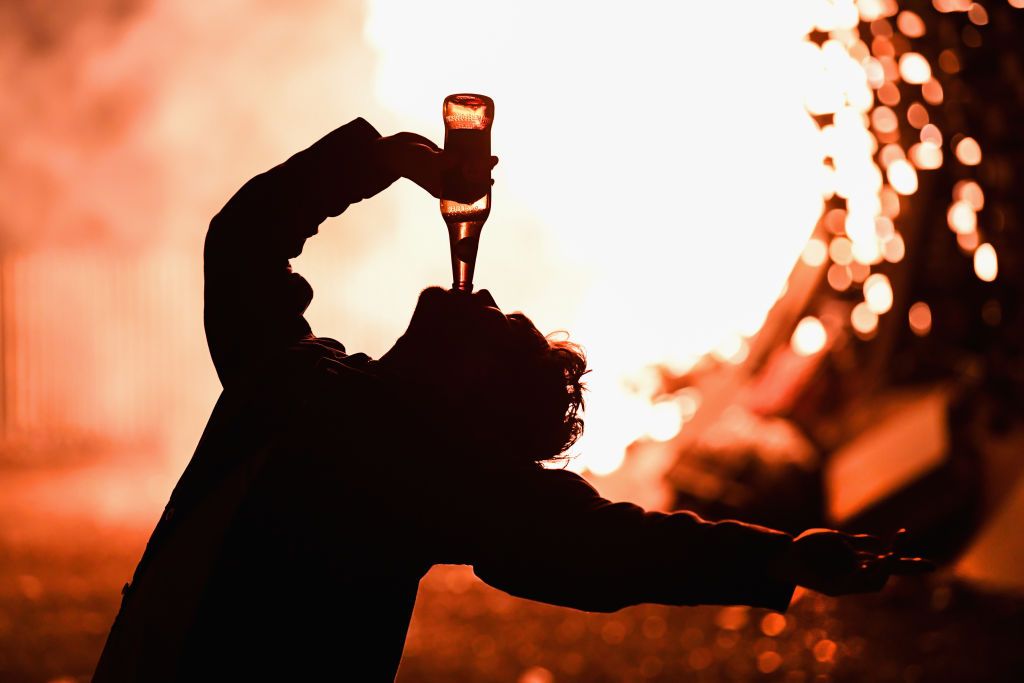
Many of those who criticize the Eleventh Night bonfires believe that they are magnets for anti-social behavior while those who defend them believe they are a family-friendly celebration of loyalist culture.
According to data compiled by the Irish News in 2016, the Twelfth of July results in similar crime levels to those around St. Patrick’s Day, a day that could be seen as a rival nationalist or republican holiday.
Looking through crime statistics for the period between 2009 and 2015, the Irish paper found that while the Twelfth came out on top for crime when taken as a single day only, St. Patrick’s Day featured more crime when studied over a 36-hour period surrounding the event.
More recently, Dr. Amanda Dylina Morse PhD MPH, a social epidemiologist and research fellow within Queen’s Communities and Place (QCAP) at Queen’s University Belfast, wrote in the Irish Times that participants in a recent study she conducted "acknowledged the high prevalence of substance use and antisocial behaviours at the celebrations."
Dr. Dylina said her findings are echoed by research by Amanda Hall at Reading University. Hall wrote in 2022: "Bonfires are now more professional, politicized, sectarian, and divisive than ever before, illuminating the extent to which violent actors have seized control of bonfires and use them to gain community support while threatening 'outsiders' with violence."
*Originally published in 2019, last updated in 2025.
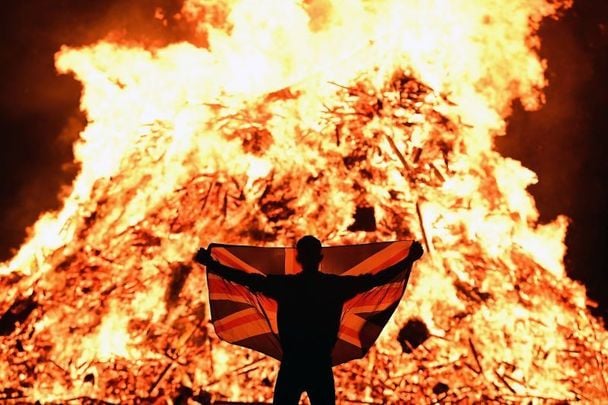
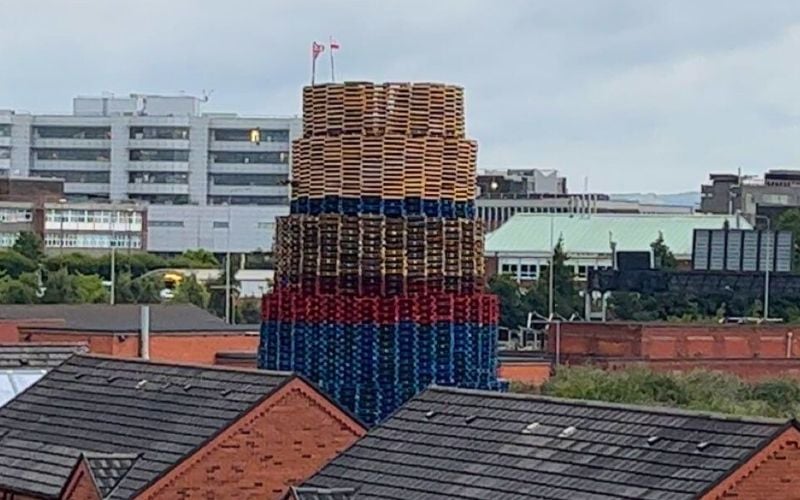


Comments